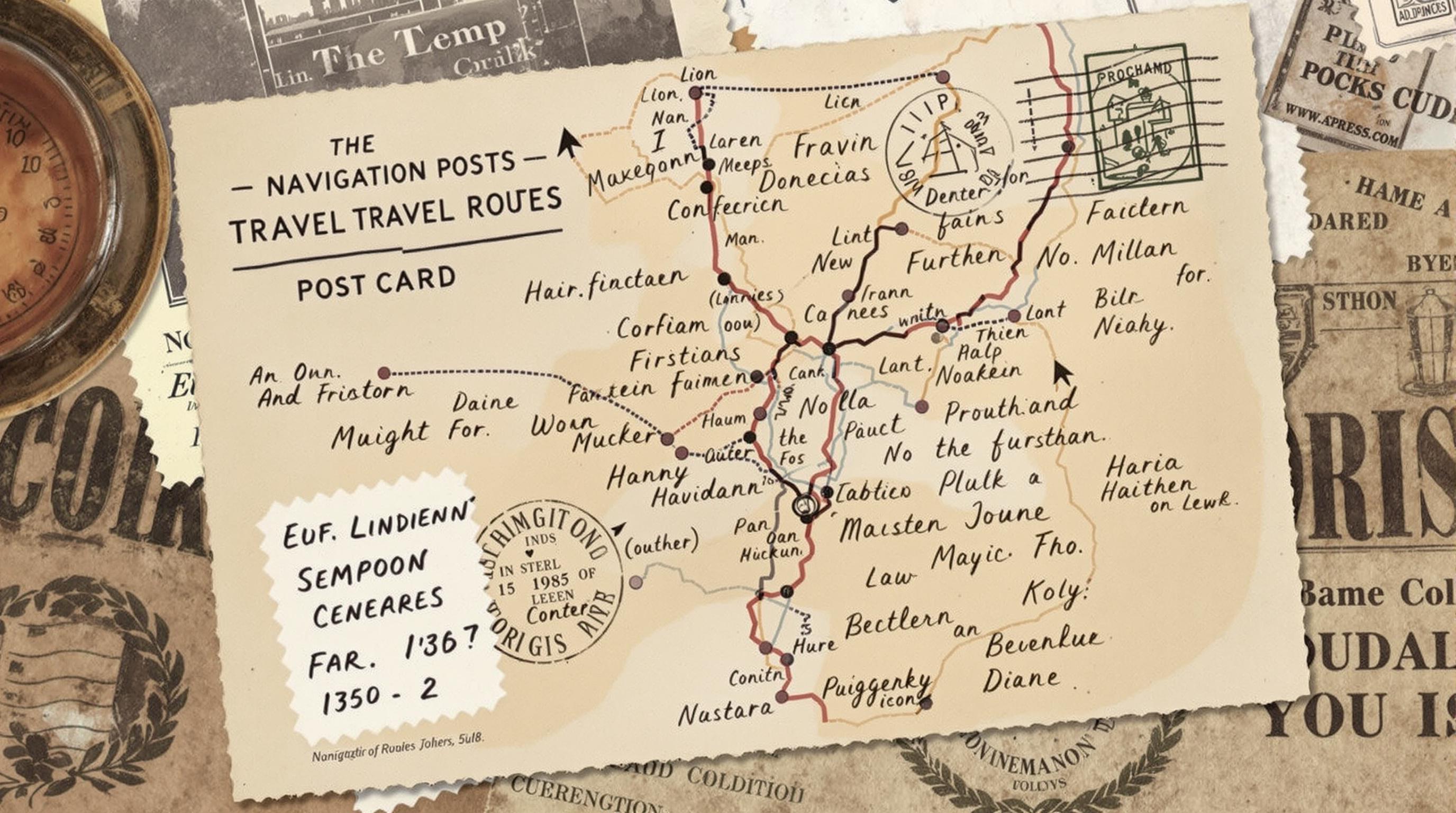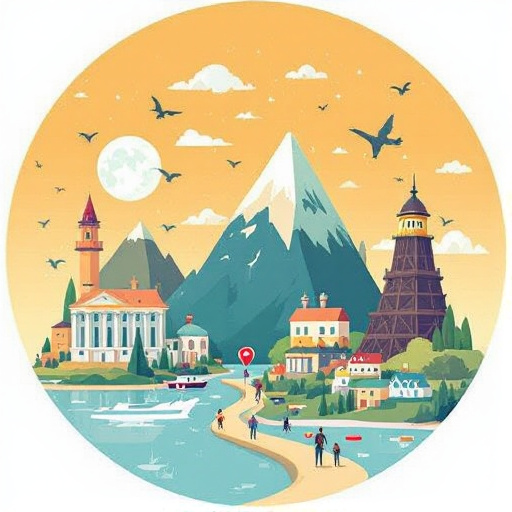Featured Articles
- Exploring the Rise of 'Nomadic Gastronomy': A Culinary Journey through Uncharted Travel Experiences
- Exploring the Rise of "Slow Travel": Rediscovering the Joy in Journeying, One Hidden Corner at a Time
- Navigating Nostalgia: Rediscovering Vintage Travel Routes Through Forgotten Postcards and Itineraries
- The Silent Journeys: Exploring the Rise of Travel Experiences Without Social Media Distraction
- Top 8 Groundbreaking Travel Experience Products Launched Since 2019: Expert Reviews and Rankings
Unexpected Expat Adventures: Unraveling Hidden Travel Stories from Lives Abroad
Unexpected Expat Adventures: Unraveling Hidden Travel Stories from Lives Abroad
Living abroad can reveal the most unexpected adventures and serendipitous moments, as expatriates delve into a world far removed from their own. These hidden travel stories not only enrich the lives of expats but also offer a tapestry of cultural experiences worth sharing.
Unexpected Encounters: The Magic of Cultural Mashups
Imagine settling into a bustling neighborhood in Bangkok, just to discover your next-door neighbor is a retired opera singer from Italy, who shares her wisdom over coffee on Tuesday mornings. This is the essence of expat life: authentic connections are often born out of unexpected encounters.
Case Study: Culinary Adventures in Taiwan
Meet Sarah, a 29-year-old expat from the U.S. She moved to Taiwan five years ago, looking for a new career in graphic design. One day, while exploring a local market, she stumbled upon a cooking class that specialized in traditional Taiwanese dumplings. Eager to learn, she signed up on impulse. Fast forward to today: not only has she mastered the art of dumpling making, but she also runs her own culinary tour business that introduces locals to international flavors.
Cultural Integration through Food
Food serves as a universal language, breaking down barriers and creating community. According to data from the International Culinary Institute, 70% of expatriates believe that cooking classes significantly enhance their cultural understanding. Moreover, shared meals can foster lasting friendships; many expats report that potluck dinners are an excellent way to bond over shared culinary adventures.
Humorous Anecdotes: Misadventures Abroad
But it’s not all gourmet experiences; sometimes life presents comical challenges. Take Toby, an expat in Spain who, during his first week, tried to navigate the world of tapas. Fueled by excitement, he ordered one of everything on the menu, thinking he was impressing the locals. When it arrived, his table was completely covered in plates while the waiter watched with a bemused expression. “I came to Spain to learn, but I ended up becoming the star of my own comedy show,” Toby laughs.
Language Barriers: A Recipe for Laughter
Language plays a significant role in these humorous misadventures. A 2018 survey by the Expat Insider found that 40% of expats encountered funny situations due to language misunderstandings. One common scenario involves mispronouncing words, resulting in hilariously awkward conversations. For instance, a couple in Germany might ask for "a rear window" (hintere Fenster) when they actually meant “a rear end” (hintere Seite), leading to laughter and learning.
Persuasive Insights: Why You Should Take the Leap
So why consider becoming an expatriate? Beyond the allure of new landscapes, the transformative experiences available to those who embrace the unknown are invaluable. Learning to adapt in different cultures enhances creativity, improves cognitive flexibility, and fosters emotional intelligence.
According to a study by the British Council, 73% of expatriates report feeling more culturally tolerant, which significantly enriches personal and professional relationships. The benefits extend far beyond travel—expats often return home with a broader worldview and a new set of skills that are increasingly sought after in today’s global job market.
Statistics Show Expat Growth
The number of expatriates worldwide has surged over the last decade. According to the UN, over 272 million people live outside their country of birth. This growing trend signals an increasing desire for individuals to experience life abroad, seeking opportunities for personal and professional growth.
Finding Your Tribe: Building Community Abroad
One thing is certain: finding your tribe while living abroad can cushion the cultural shock. In cities with large expat communities, social networks often thrive through meetups, activities, and online forums. Websites like Meetup.com or Internations even allow expats to gauge their interests and connect with locals and fellow expatriates alike.
For example, a local baseball club in Tokyo hosts potluck nights every Friday, drawing both Japanese folks and foreigners together in the name of sports and food. Through these gatherings, ties are formed that transcend cultures, creating a vibrant community that enriches the expat experience.
Case Study: A Safe Haven in Uncertain Times
During the COVID-19 pandemic, many expats reported feeling isolated. However, communities adapted; online gatherings became the norm. Linda, an expat living in Paris, recalls how her virtual book club pulled her through the uncertainty. “I never thought I could connect so deeply with friends I hadn’t met in person,” she shares, reflecting on the importance of support networks during challenging times.
Traveling Beyond Borders: The Route Less Taken
One of the most adventurous aspects of being an expat is the chance to explore lesser-known locales. While tourist traps abound, many expatriates discover hidden gems that showcase the soul of a destination. For example, Molly, an avid traveler and expat in South Africa, unearthed a small village in the Drakensberg Mountains, famous for its ancient rock art, after a casual chat with a local cab driver.
Hidden Treasures Awaiting Discovery
This kind of genuine, off-the-beaten-path exploration often leads to the most memorable stories. Traveling to extraordinary places can be exhilarating; a study by Booking.com noted that nearly 61% of travelers prefer untraveled spots, seeking the authenticity that comes with immersing themselves in genuine cultural experiences.
Adventure is at Your Fingertips
The thrill of adventure doesn't have to be limited to frequent faraway travels. Small, spontaneous trips within the host country can reveal astonishing experiences. Many expats practice what I like to call "exploration roulette”: selecting a random destination on a map and diving headfirst into that culture. For instance, during a weekend in Budapest, an expat might stumble upon a hidden thermal bath, a lively ruin bar, or an impromptu music festival. These moments ignite passion for cultures and create stories to be shared for years.
Storytelling: Weaving Narratives of Change
Every expat journey is rich with narratives that tell tales of change. The diversity in experiences fosters a depth of storytelling; whether it's about facing fears, learning new languages, or embracing new cultural norms, these stories weave together a colorful tapestry of life abroad.
Emma, an educator in India, recalls her first day in a vibrant classroom filled with students of various backgrounds. “I was terrified! But I threw myself into stories—mine and theirs. We became storytellers, learning together,” she says. In the end, it was those cross-cultural exchanges that transformed her understanding of teaching.
The Power of Storytelling in Cultural Exchange
Storytelling is a powerful tool for cultural exchange. According to research from Harvard University, storytelling encourages empathy and enhances communication skills. When travelers share their experiences, they connect not just with their own past but also with the histories of those around them. It fosters mutual understanding, bridging divides and celebrating differences.
Conclusion: Crafting Your Own Expat Narrative
In conclusion, the unexpected adventures that come with living abroad shape countless narratives, connecting individuals through shared experiences, laughter, and learning. From culinary escapades to humorous misadventures, these stories remind us that life outside our comfort zone often leads to the most enriching experiences. So, whether you’re considering moving abroad or simply yearning to travel, remember: every corner of the world holds the potential for hidden adventures waiting just for you.




